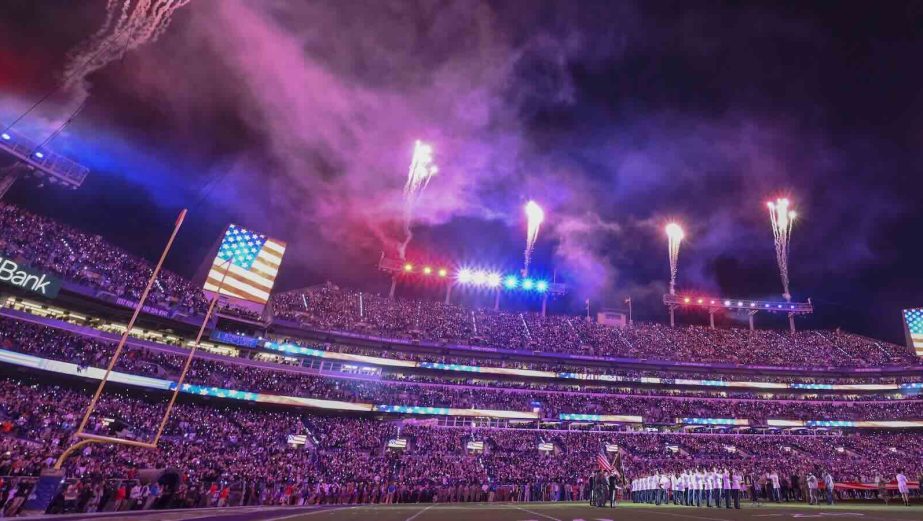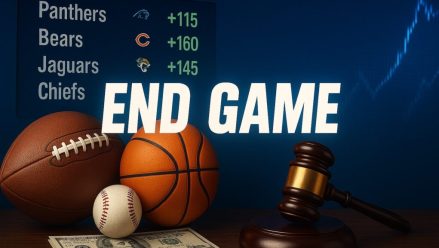The incursion of prediction markets into the state-regulated sports betting realm, bringing with it the opportunity to speculate on politics and finance as well as sports, has apparently helped nudge along one of the latest industry big-thinks. The one-stop speculation — read: betting — app is having its moment both in theory and in practice.
ESPN Bet has pinned its new bid for viability on a “FanCenter” app that sends viewers bouncing between watching on-screen content, perusing bets, and scowling at their fantasy performance with a few thumb swipes.
DFS+ apps like PrizePicks and Betr continue layering either social feed or casino-style games under the hood. PrizePicks has gained federal approval to venture into prediction markets.
The Underdog DFS site has integrated a sports event contracts market through a technology partnership with Crypto.com.
FanDuel integrates its casino and sports betting platforms in one app, and has yet to announce how it and CME will deploy their new prediction market alliance.
Robinhood takes these even further as a financial instrument that posts sports events contracts, concerning academia over the gamification of financial trading and crypto speculation, particularly in the younger demographic gambling companies hope to turn into new customers.
And the synergy continues. Robinhood CEO Vladimir Tenev is even mulling speculation on real estate.
Said Kalshi attorney Josh Sterling at the National Council of Legislators from Gaming States conference in July, while defending the functionality of prediction markets, “Every company out there that I represent, even the ones that I don’t, are trying to build the everything app on their phone because that’s how people aged 25-to-35 view their portfolio.
“They want to trade stocks, zero data expiry options, crypto, FX, events, horses. You name it, they want to trade it because they view that as their financial portfolio. So this isn’t your mom or your dad calling E.F. Hutton to trade stocks at $20 or whatever. This is people trading anything and everything that they can.”
InGame asked industry stakeholders from varying sides of the transaction about whether the one-stop app is the future of speculation.
Corey Gottlieb, chief product officer, DraftKings:
“There’s this idea that everybody wants everything. That’s just an overall hypothesis.
“I just want at my disposal every possible way that I can have skin in the game in some facet of my life, whether it’s related to a horse or a sports bet or the Oscars or a casino product. And I think that hypothesis probably is a decent driver of why you’ve seen our portfolio of products evolve.
“We certainly think that the synergy of, for example, us having a great lottery product in our Jackpocket product, a great iGaming product in our DraftKings Casino or Golden Nugget product, a great sports betting product, those things don’t just work in isolation.
“We want to cross-pollinate those users. We have a shared account and wallet and marketing platform whose job it is to interconnect those customers. So that overall hypothesis, the kids-these-days-want-everything thing, definitely drives some of the way we think about our portfolio.”
Ed Moed, CEO, Hot Paper Lantern:
“I think if [customers] get it, they will take it, but they will still always use numerous apps, because that’s the nature of their personality, and that’s cause-and-effect the way they do things.
“One app, certainly, that can do a lot is something that’s efficient and can work with many audiences. It’s really just about segmenting the audience stuff.
“I’ve got two kids, and I use them as focus groups. They sit on the couches with their friends, they’re 25 and 22, and I literally use their friends like, ‘What app do you want? What do you like to do?’ And they’re asking me, because they know I’m in the business, ‘What’s new? What should I be going on to?’
“I think that group does want to use a lot of different things and try them out. But on the other hand, they do want it easy. So they will use one app, but they’ll use many more, that group.
“But people who are in their 30s who are doing this, especially on the gaming side, they would absolutely stop at one app if it offered everything. They wouldn’t even bother going beyond that. They don’t have the time or desire to do that.
“So really all depends on how you segment, the audience, in terms of what they want to do.”
Joey Levy, co-founder, CEO, Betr:
“I think there’s some customers who are maybe looking for one thing, but then there’s others who are looking to at least have the option to do all of that. We want to be in a position where we could offer the best, simplest, most intuitive and engaging product experience for potentially all of those different offerings. So, yeah, I think we should offer customers as many different entertainment options as possible.
“And the fact that we’re moving into a world, and the industry is in a place where it is where that’s beginning to become possible is just really exciting.”
What was the last great idea in gambling?
It may take years to assess whether the all-in-one-place betting/trading app was a good idea.
What the last great idea? InGame asked Moed, whose background is in branding and communications and whose company has had numerous clients in gambling/DFS.
MOED: Does a great idea mean that it’s being executed well? Or can a great idea mean it’s a great idea, but I don’t know if it’s really ever going to come to fruition?
INGAME: Because we’re greedy, how about both?
MOED: The last great idea was ESPN having ESPN Bet. Think about the audience. Think about everyone in that audience, and think about how that captive audience could walk over that bridge … and it hasn’t.
It was a natural. Maybe it will someday. But it was an absolute natural, and it hasn’t materialized into anything that they had hoped they were wanting to do. In my mind, the power of ESPN and the brand and the base, and even the millions they have on fantasy, and all the pools they have, NCAA, all that, to not get a giant part of that base is crazy, right? So to me, that was a great idea that hasn’t materialized.
The last great idea that worked, Moed said, was DFS+ apps pivoting away from state-level scrutiny — the kind sweeps casinos and prediction markets inherited — to offer less-controversial, peer-to-peer games.
MOED: They’re all separate companies, but they all have their own machine that works together because they were all being attacked.
So, there may have been some conversations that they had, but it’s an amazing area. [PrizePicks] is a giant company that was built on one product that could have become obsolete. They had to innovate to actually productize in other ways. That’s what they’re trying to do, I think, at this point.
But it shows you how much — for a marketer and a brander, this is really incredible — how much people want to get involved and play things that are very simple and easy, that they can jump to, wage a little bit, come back. Not a big sports player? Maybe they have some of them on there, and there’s a much wider universe of those people that like to do it.
So, you can target tens of millions versus hundreds of thousands to be able to do that. Really kind of an interesting situation they found themselves in. They’ve all kind of productized in different ways to make sure it’s not a pick ’em, which is really great.






